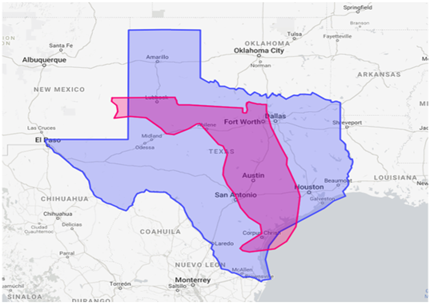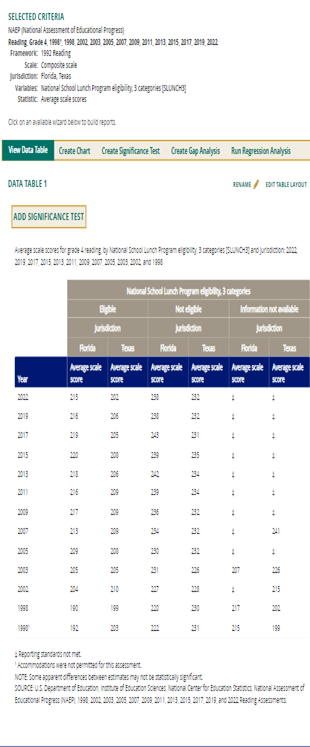Your humble author was enjoying a cigar in his favorite haunt recently, when he encountered a friend, his sister and her husband. A proposal was made and accepted to adjourn to a nearby rooftop bar for a drink or two. My friend’s vacationing sister-an entirely delightful hoot to use the technical Texas phrase-kept an active tally on the number of drinks an absent family member was behind. “She’s going to have to catch up!” my new aggressively vacationing friend announced on an ongoing basis.
Now when you are an education policy nerd (not recommended btw) this makes you think of Florida and Texas. Texas is going to have to catch up.

As we’ve discussed in these pages previously, Texas has a wildly successful private sector that vacuums up Fortune 500 companies, revolutionizes global energy markets and more. Texas is blessed by vast resources like what may wind up as the world’s most productive oil basin, ocean access, and a wildcatter spirit of innovation. Texas has successfully managed having both a growing and a growingly diverse population. Alas this dynamism does not extend into the public sector, which is far more influenced by politics than markets. Texas politics has been historically cautious, which is generally beneficial, but which has downsides when changes are required. Florida by comparison has many of these same cultural and economic virtues but has simultaneously managed to modernize the public sector over time. Perhaps not coincidentally, Florida is the only state that has been outdoing Texans in attracting new residents from other states.
The National Assessment of Educational Progress reveals the scale of Florida’s K-12 success:

Back in 1998, Texas low-income students were approximately a grade level ahead of what my colleague Ron Matus refers to as “Flori-duh” of the past. Years ago, however, the shoe was on the other foot- now Florida sports more than a grade level ahead of their Texas peers.
If you are curious about the details of how Texas became so stuck in the mud on K-12, I cannot hope to match the account provided by Leo Linbeck III on his Substack account– an epic saga of misfortune. In essence, a group of rural Republicans Linbeck dubs “the rural 21” decided the were willing to die on a hill to prevent school choice from advancing. As Linbeck astutely notes, this willingness came in spite of overwhelming evidence that their constituents-including their rural constituents- overwhelmingly favored choice. In Austin, however, it is a common mistake to conflate the organized lobbying complex claiming to represent your constituents with your actual constituents. There is much more to it than this so read all the posts, but that is my best shot at a paragraph length summary.
Last Tuesday the constituents made themselves heard, loud and clear, in the Texas primary elections. Congratulations to Governor Greg Abbott and the many committed people who took the necessary action. Florida has a head start of not a few libations, but of 25 years of piloting and expanding multiple choice programs all the way up to but hardly limited to a formula-funded universal ESA, which will be delightfully waitlist free.
Texas will need to catch up, and the first step of catching up is getting started, so cheers to new beginnings in the Lone Star State.


